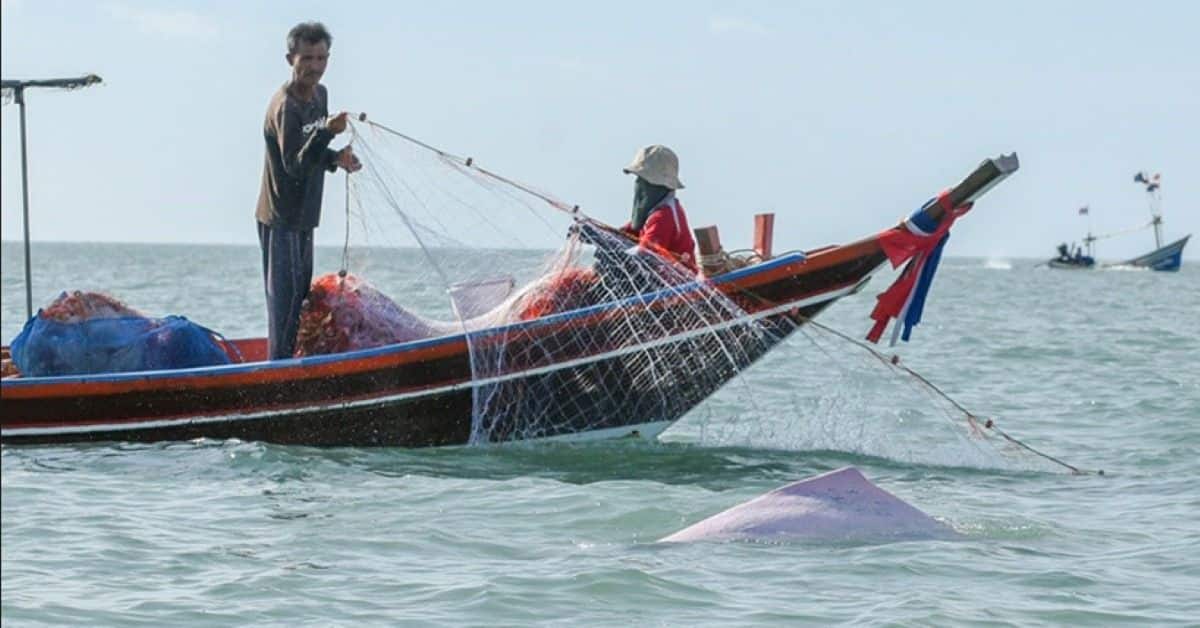

Thailand’s Parliament has passed a controversial amendment to the Fisheries Act, aiming to strike a balance between marine conservation and the livelihoods of fishers. The revised bill was approved by the House of Representatives on September 17, despite earlier objections from senators over Article 69, a clause that regulates fishing gear.
The Department of Fisheries confirmed that Article 69 has not been removed but revised with additional safeguards. Under the current law, the use of seine nets with mesh sizes smaller than 2.5 centimetres is prohibited for nighttime fishing beyond 12 nautical miles from shore. The updated version now permits this gear to be used under certain conditions.
Environmental advocates and fishermen have raised concerns that the change could harm marine ecosystems and jeopardise Thailand’s international commitments to sustainable fishing practices.
Bancha Sukkaew, director-general of the Department of Fisheries, defended the amendment during a press briefing on September 29. He said the revised law grants the agriculture minister the authority to approve specific fishing gear within designated zones and under strict regulations. These include mandatory research reviews every two years and public hearings.
“Any approval for such fishing equipment will be based on scientific research to ensure that marine resources are not negatively impacted. Research remains central to every decision.”

The amendment, which revises the 2015 Royal Ordinance on Fisheries, covers 71 sections. Key changes include reduced penalties, expanded rights for small-scale fishers, and efforts to bring Thai fishing regulations in line with global sustainability standards.
Two steps forward, one step back
The law also repeals Article 34, which restricted offshore fishing, restructures provincial fisheries committees, and limits fishing licences to Thai nationals. Additionally, it removes overlapping labour regulations in seafood processing plants, a move aimed at easing operational burdens.
Bancha believes the new framework will support sustainable fishing while boosting the income of local fishers.
However, Piya Tetyam, chairman of the Federation of Thai Fisherfolk Associations, slammed the amendment as a “legal loophole” that reintroduces fishing gear previously banned in 1983 due to environmental concerns.
“Research by the Department of Fisheries already showed that this equipment damages marine ecosystems, especially fish larvae. Only about 175 commercial trawlers stand to benefit, while small-scale fishers who rely on mature fish will suffer.”
He added that his group plans to launch a public awareness campaign in Bangkok by the end of the year, warning of long-term ecological damage if fish populations continue to decline.
The amended Act is currently awaiting publication in the Royal Gazette before coming into effect. The Department of Fisheries is also preparing subordinate legislation to guide the law’s enforcement.
The story Parliament passes Fisheries Act amendment; concerns over marine conservation as seen on Thaiger News.
